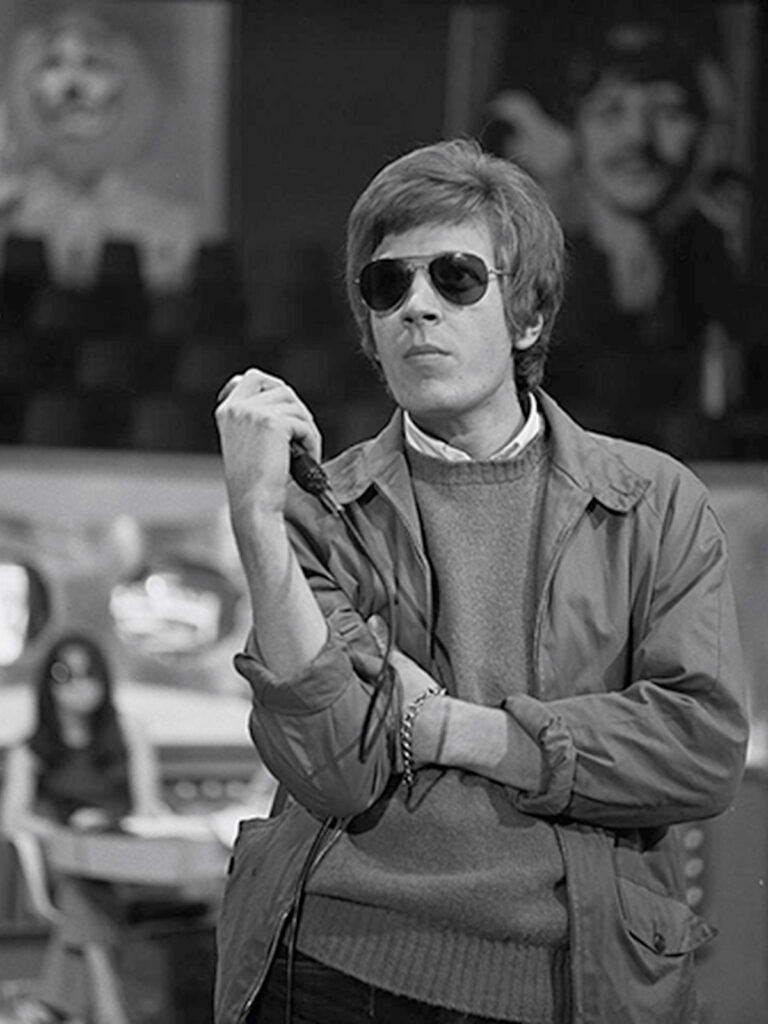Last week, I wrote an article for an upcoming concert at Berwaldhallen later this year, featuring a selection of music by pop idol turned experimental songwriter, Scott Walker.
After a successful five years with The Walker Brothers (even though none of the three members were related, nor were any of them actually called Walker), Scott Walker broke out into a five decade long artistic voyage.
Scott Walker’s music combines the complex storytelling of Ingmar Bergman and Akira Kurosawa with the harsh perspectives of Jacques Brel, the grandiose orchestral arrangements of 1960s pop, as well as references to such things as painter Hieronymus Bosch and writer Albert Camus.
The combination probably looks like it’ll blend about a well as oil and water – but Walker makes it work.
Take for example the forlorn but epic The Old Man’s Back Again from the 1969 album Scott 4 – which is actually about the Warsaw Pact’s invasion of Czechoslovakia in 1968! – bringing to mind Ennio Morricone’s dramatic film scores, while the simple melody keeps the track from becoming too indulgent. Scott Walker’s mellow baritone is half-way distant, but not emotionless, scat-singing in an almost deadpan manner.
Trace a line between the delicately balanced dissonances of Benjamin Britten and the lyrical modality of Simon & Garfunkel, and somewhere on that line you’ll find Scott Walker’s 1984 track Sleepwalkers Woman. Also, for some reason, the middle section always makes me think of Ralph Vaughan Williams’ song cycle Songs of Travel.
A different beast altogether is the absurd and grotesque Epizootics! from Scott Walker’s final solo album Bish Bosch released in 2012. It starts off with a deliciously burlesque baritone sax riff, soon accompanied by a surreal slide guitar and an oddball drum beat. Screaming trumpets, hysterical swing jazz interludes and abstract soundscapes also make appearances, and the lyrics hint at a disease outbreak in a tropical paradise.
I did not know Scott Walker very well at all before researching him and listening to a selection of his music before writing the article for Berwaldhallen. Turns out a great number of other amazing musicians and artists not only knew about Scott Walker but were greatly inspired by him. They include the likes of Radiohead, David Bowie, Leonard Cohen, and Brian Eno.
While many seem to want to label Scott Walker as an “avant-gardist” or a “composer”, he himself seemed quite intent on calling himself a “songwriter” even as he strayed further and further away from the luscious pop tunes that started his career. He insisted as much in an interview in The Guardian from 2012.
Walker’s constant reinventing of his sound, from the first four solo albums released in short order 1967–69, to the wonderful insanity of 2012’s Bish Bosch and beyond, truly doesn’t seem like he’s wanted to be different just to stand out in a crowd, or because he wanted to make some kind of statement. He seems to have genuinely wanted to try new things, to allow his inspiration to take him wherever it went.

